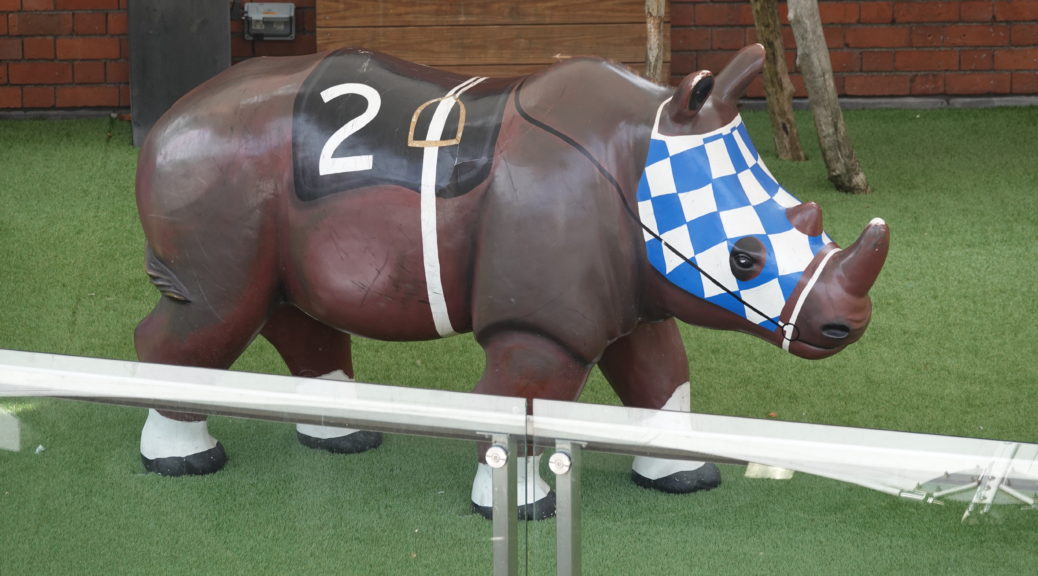
Another Brick In The Wall
This morning we came down five more locks into Chester, and stopped at the Waitrose supermarket, which has its own mooring. They are an up market chain (you’re not going to find venison meatballs in Aldi) but they let you take carts down the ramp to the towpath. One of the staff came down with us to unlock the carts when we left the magic cart locking barrier, and then took the empty carts back for us. Of course we had just spent three hundred quid there.
Then we moved to a visitor mooring closer to the center of Chester and went off to explore. Any English town with -chester, -caster, or -cester in the name started out as a Roman camp, castra. Chester, however, is the closest to the original. The city walls are intact pretty much all round the original camp, and you can still make out the rectangular grid the Romans were fond of in the layout of the streets in the city center. The walls have been fixed up and rebuilt over the years, with more holes cut for roads and railways.
We walked all the way around the walls.
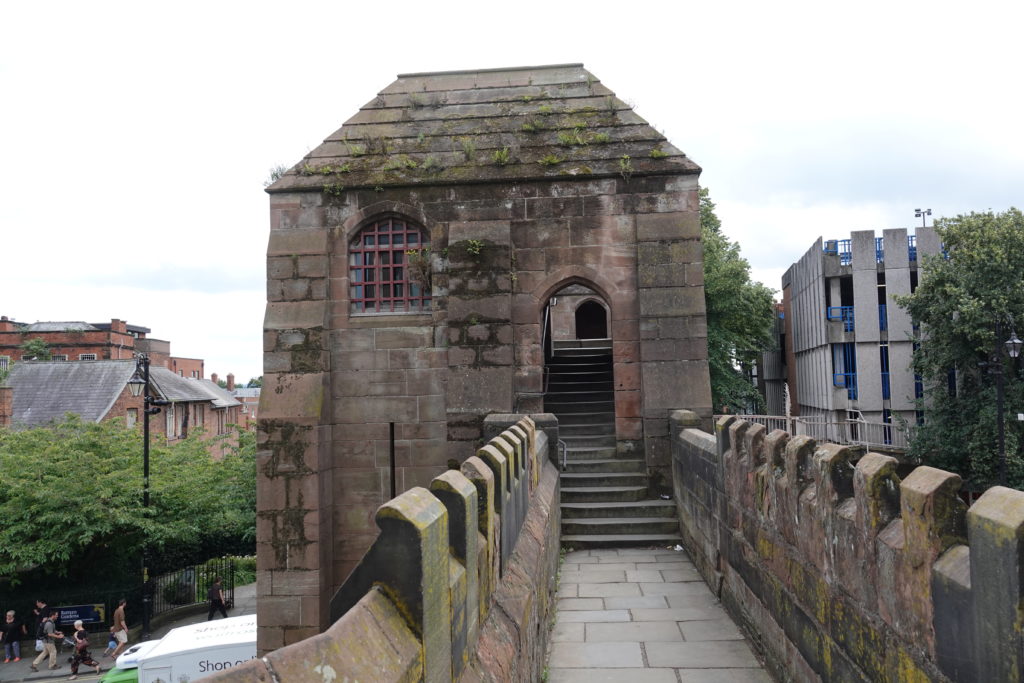
In some places the buildings on one or both sides have grown up taller than the walls, so that upper doors can open directly onto the top of the wall.
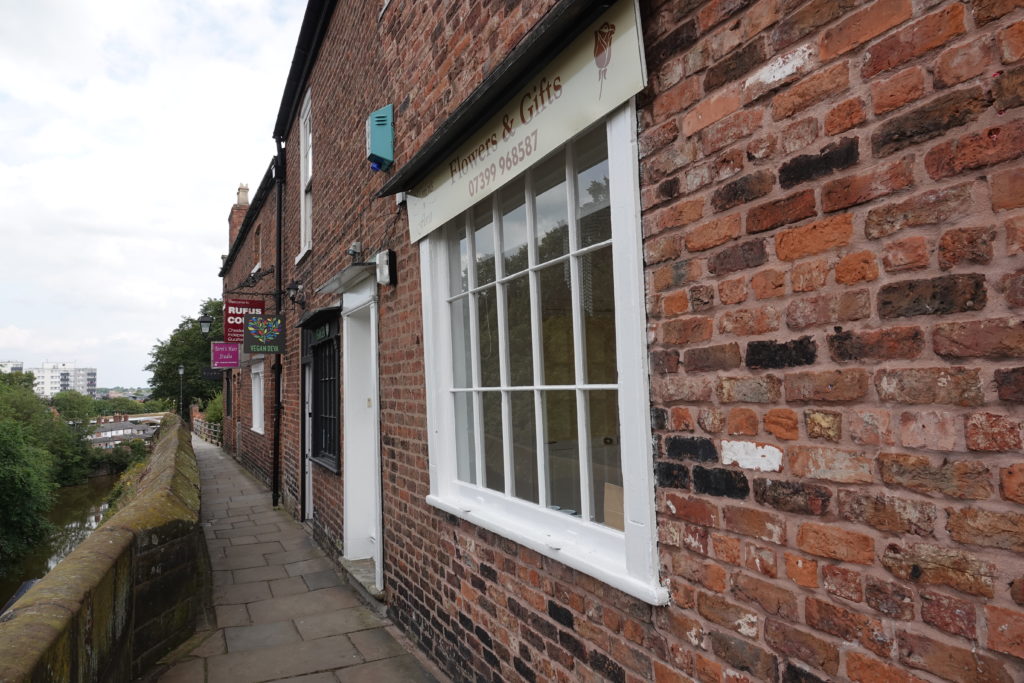
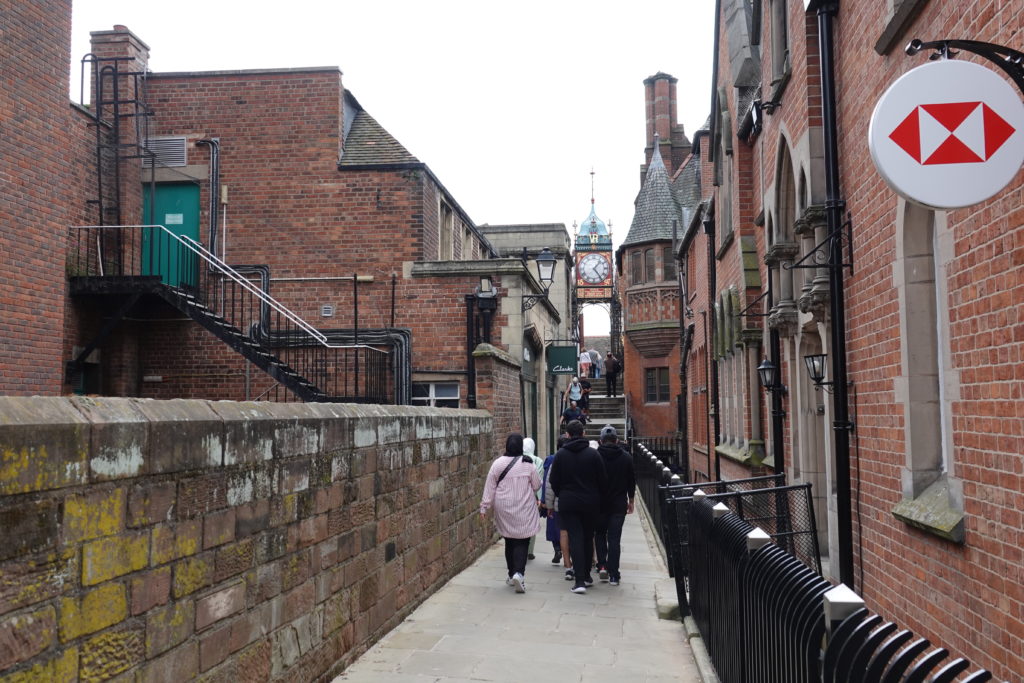
I have to ask, how are we going to stop the Welsh invading now? They can just run up the staircase in one building, hop across the wall, and run down in the building the other side. The Welsh are cunning like that.
There are great views. The Roman amphitheater…
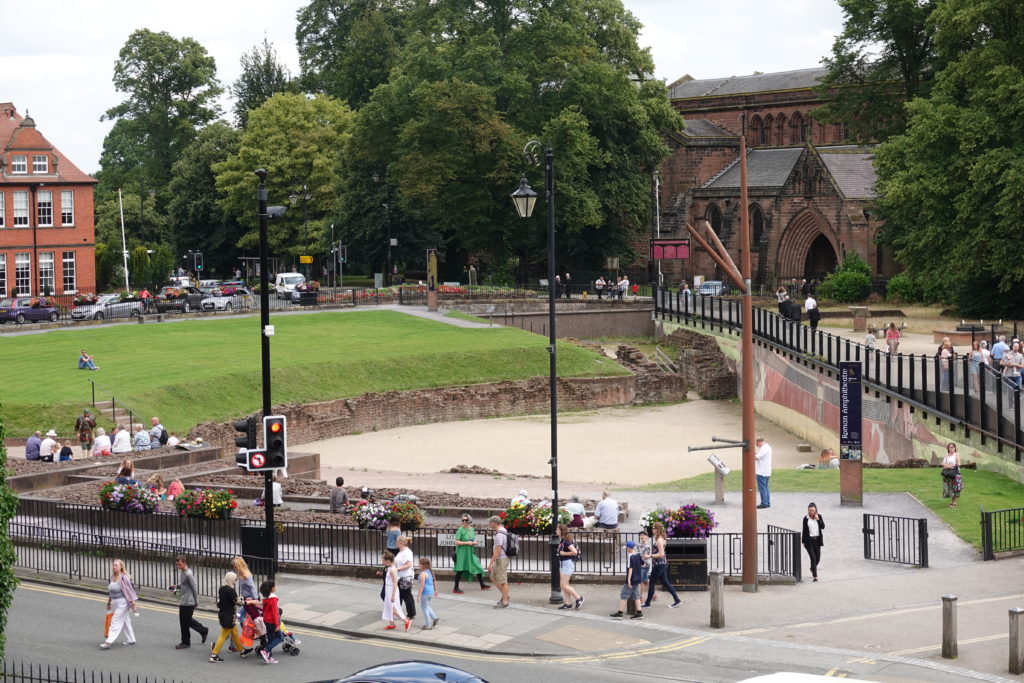
… the cathedral…
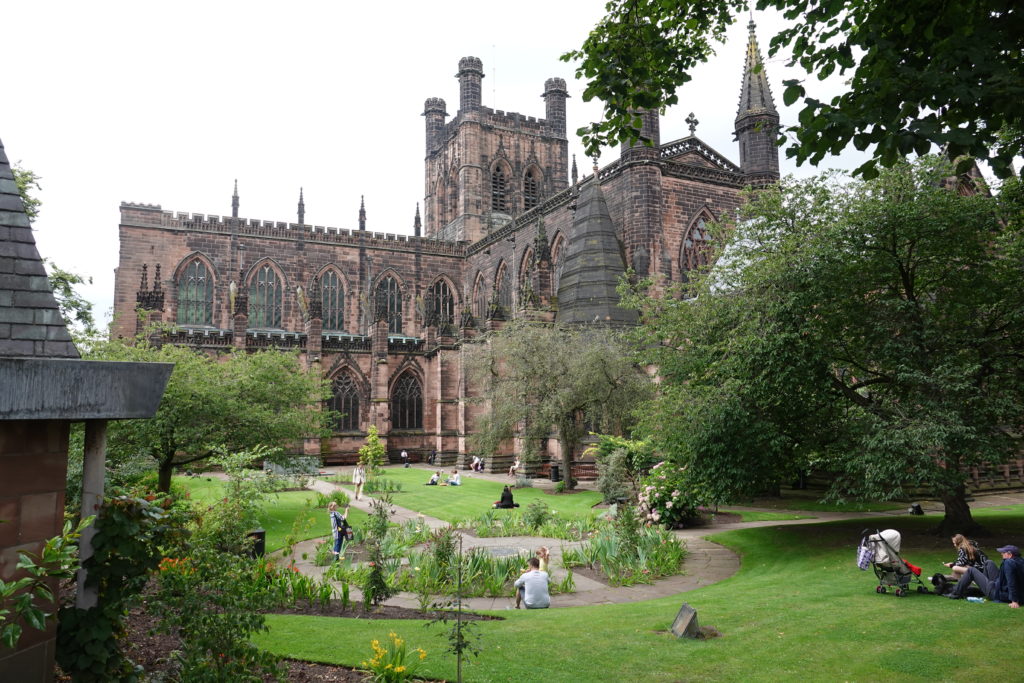
… the busy shopping streets…
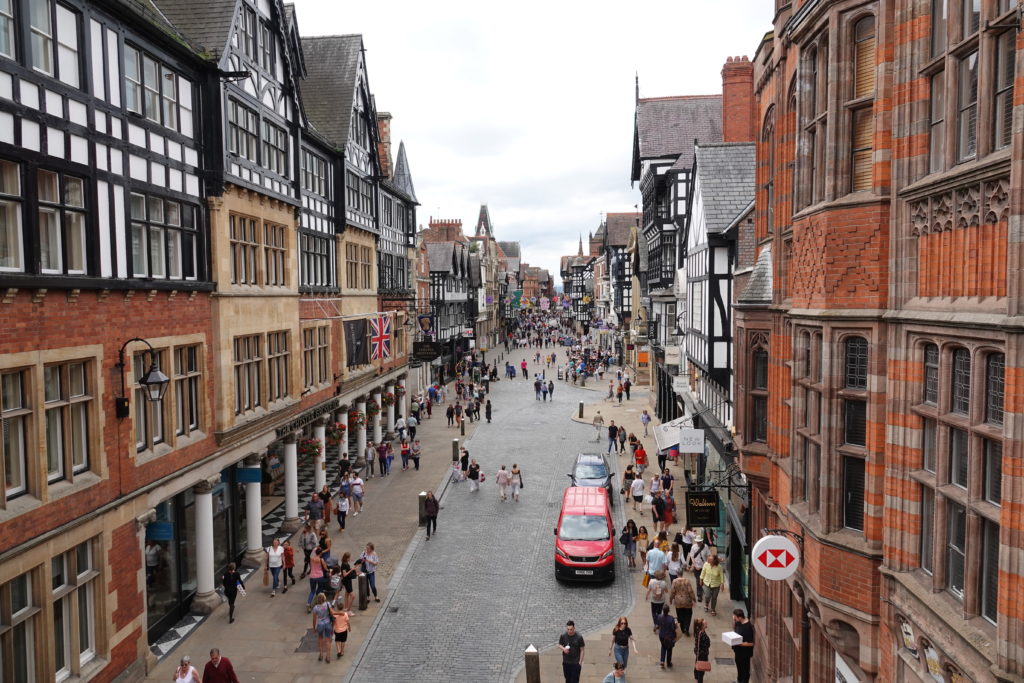
… (Look how straight that street is. It has Claudius was here written all over it.)
The castle…
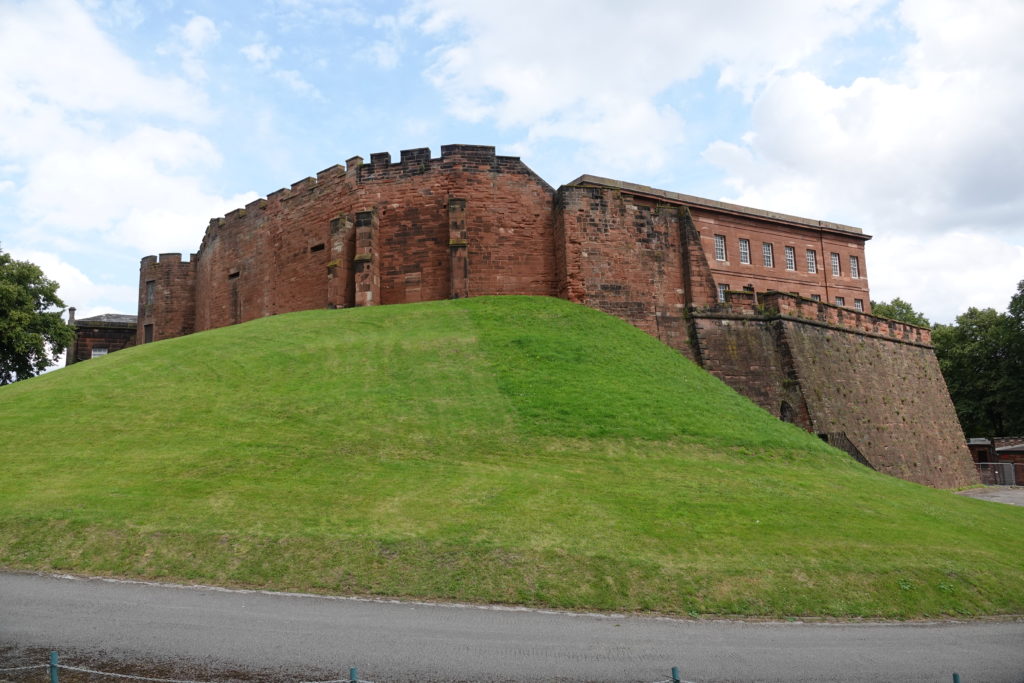
… the River Dee silting up…
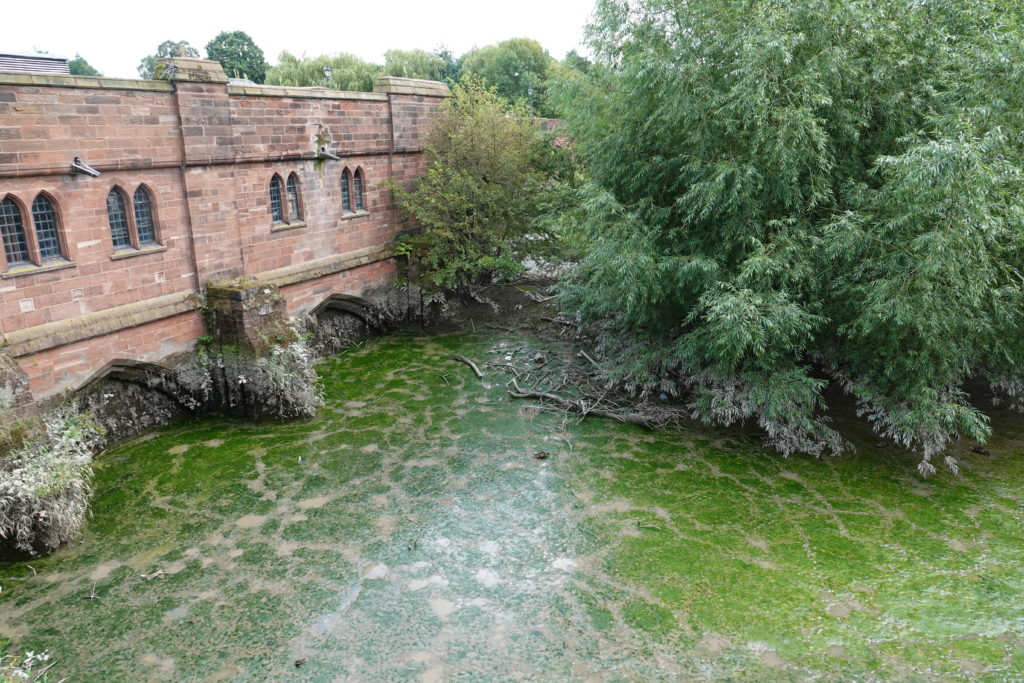
… and the racecourse.
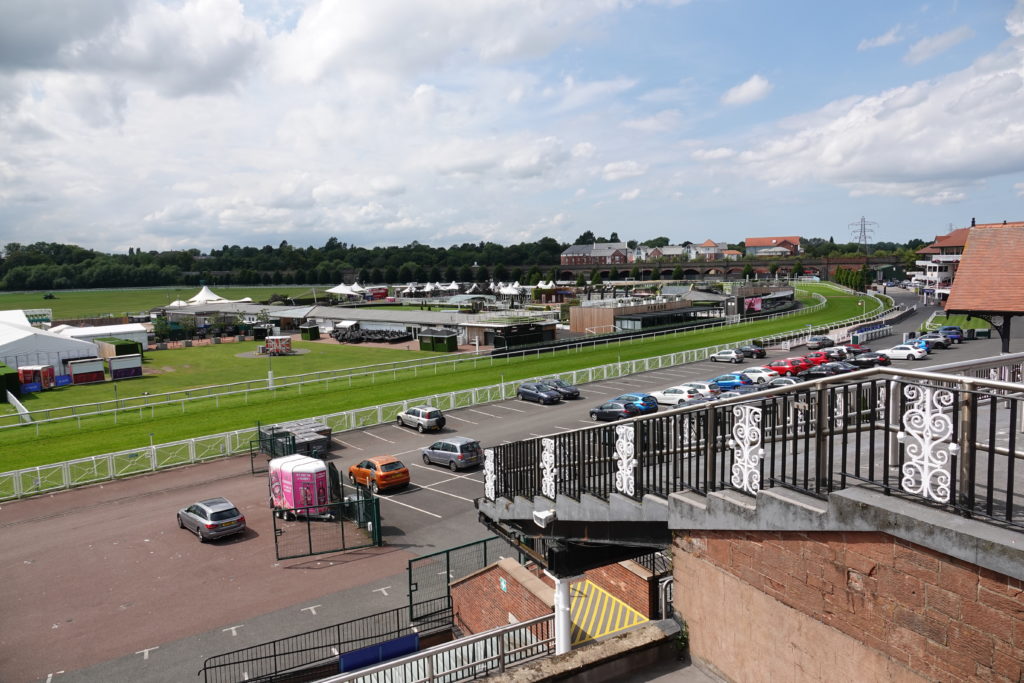
The racecourse is there because of the river Dee silting up. When the Romans founded the city this area was a bustling port. The Dee was navigable by ocean going vessels as far as Chester, which became the most important port in the north west of England. Around the 13th century the river was no longer navigable this far, and the port moved downstream. The old port filled with silt. Nobody wanted to build there because of flooding, but by the 16th century horse racing was fashionable, and the people of Chester thought this would be a fine spot for a racecourse.
There’s been regular horse racing here ever since 1539, which makes it the oldest operating racecourse in the world. The racing was started by a mayor of Chester, Henry Gee. “Gee-Gee” is still used in England as a baby talk or slang term for a horse. Gee was trying to come up with a safer alternative to the Goteddsday football match held in the same meadow. These days the “players” kick the ball and the “fans” riot afterwards, but back in the early 16th century the two roles were combined.
Much harm was done, some having their bodies bruised and crushed, some their armes, heads, legges broken, some otherwise maimed and in peril of their life.
In case you wondered where Terry Pratchett got his idea of football for Unseen Academicals, it was real life.
The racecourse is called the Roodee from the Saxon word for a cross and the Norse word for an island. Chester has always been open to everyone (except the Welsh). At one point during the silting up process the meadow was an island. You can still see the top of the cross.
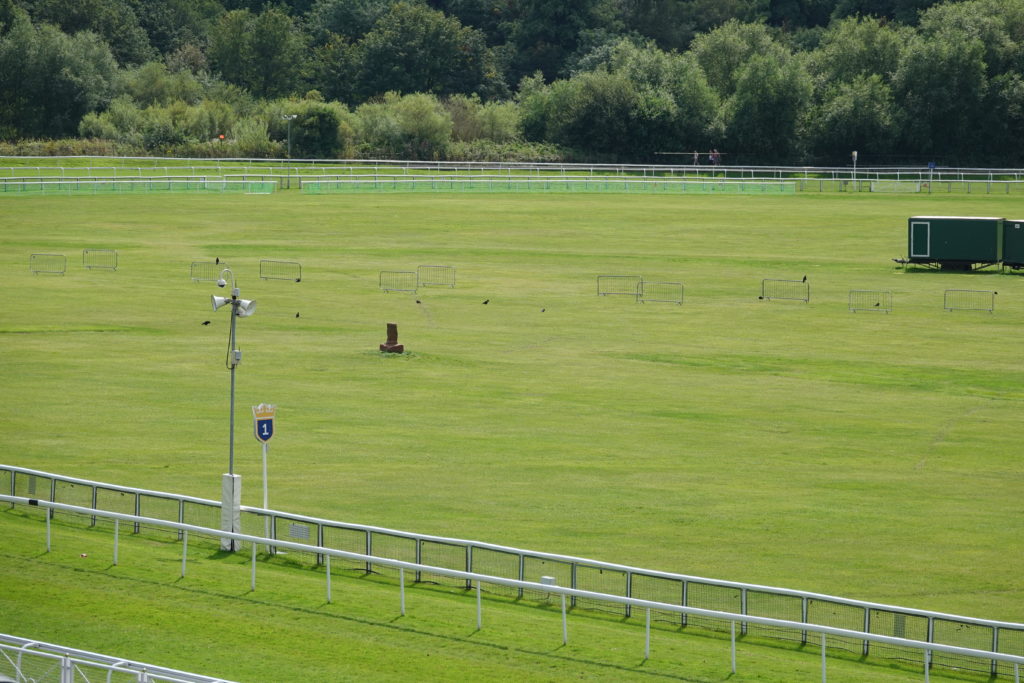
Now the going gets weird. In the year 946, Lady Trawst, wife of Sytsylt, governor of Harden Castle, was in church praying when a statue of the Virgin Mary fell on her head and killed her. The statue was put on trial for murder, and a jury of twelve men found it guilty. It was sentenced to death, hanged, thrown in the river to drown, and then buried where it washed up, and that cross was placed over it.
It’s a remarkable story, if only because if true it’s the first case of trial by jury, which did not enter English law until the Magna Carta in 1215.
One last picture from the racecourse.
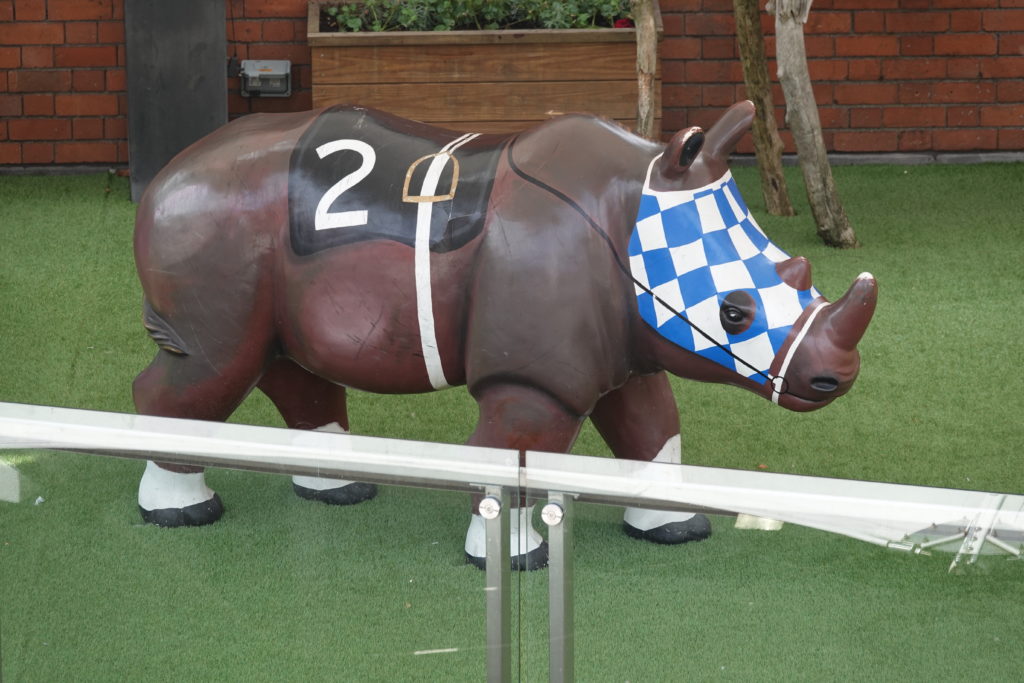
Somewhere on youtube there is a video of what happens if you try to race rhino statues. Spoiler: ʇɐǝɥ pɐǝp ɐ s,ʇᴉ
You can also see the falconry show at the cathedral close from the city walls. Today the last falcon didn’t want to play. It flew off and sat in a tree for about twenty minutes. Eventually the falconer coaxed it down and got it to show off some aerobatics.
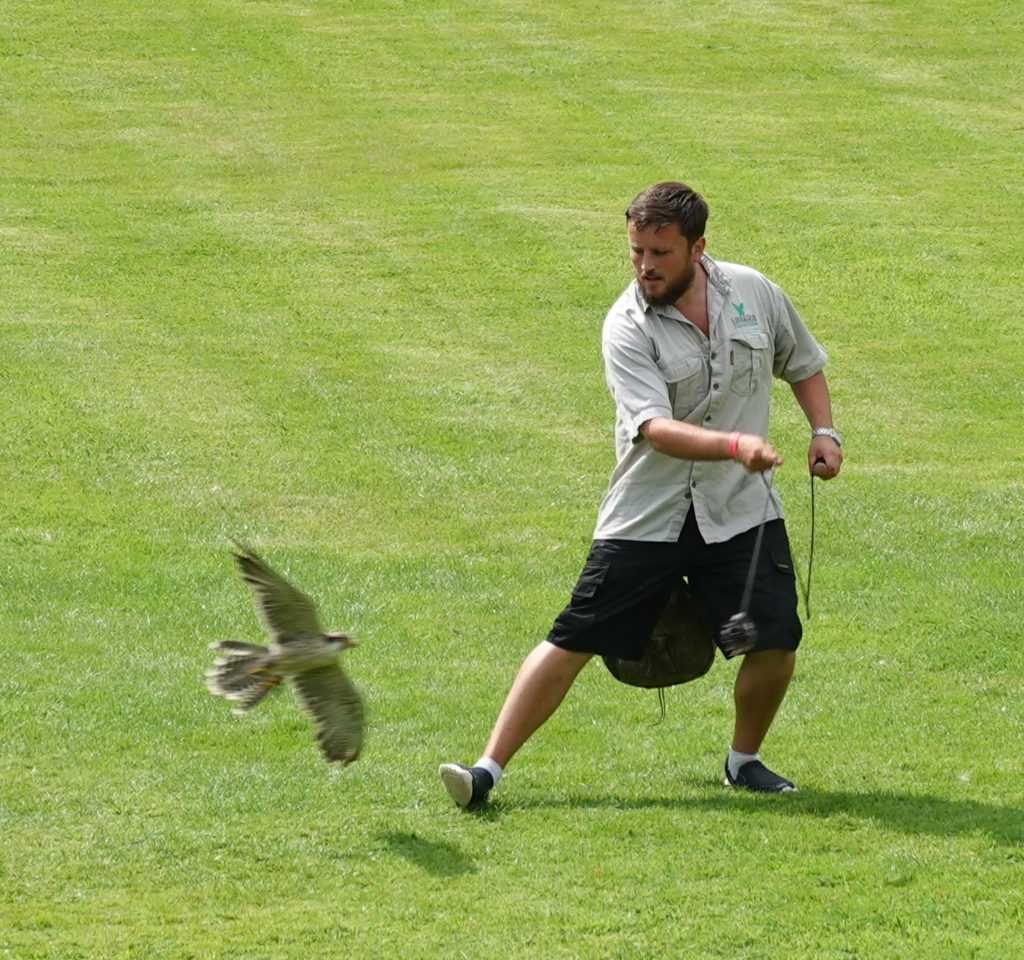
Chasing the meat yo-yo.
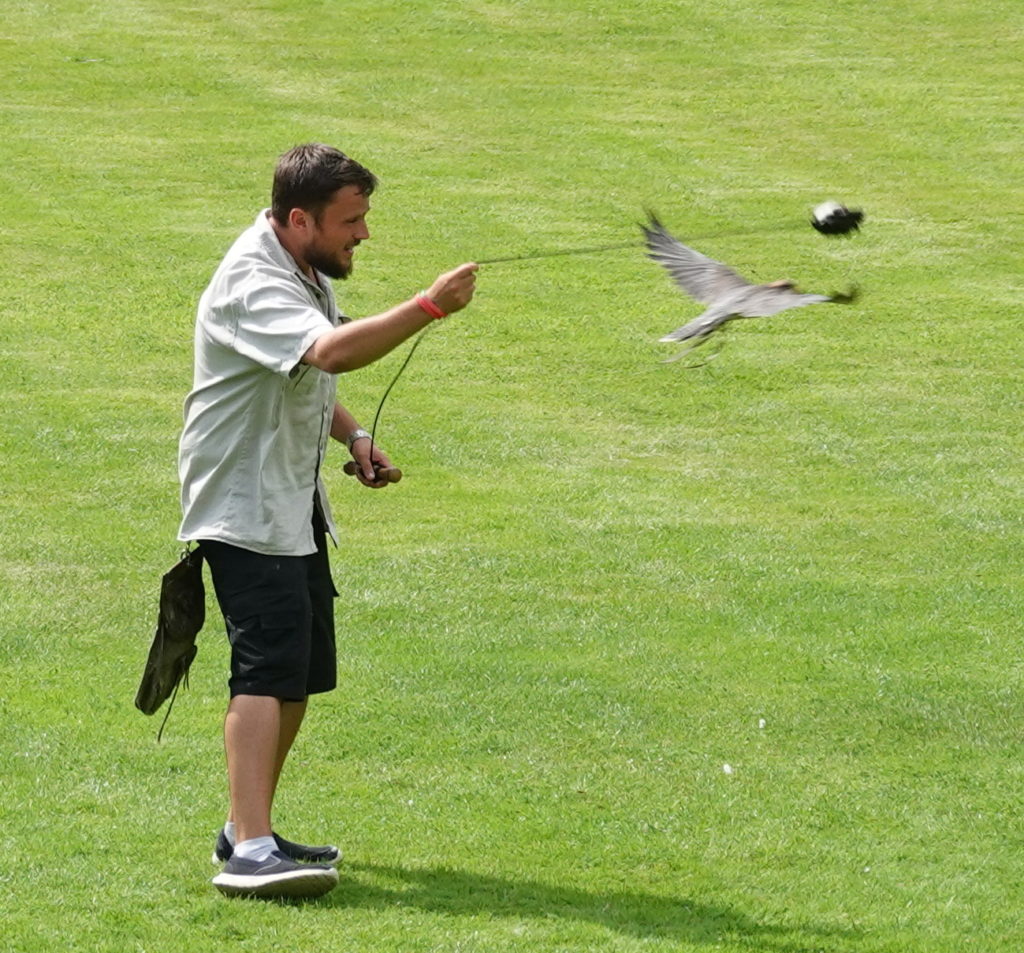
Got it!
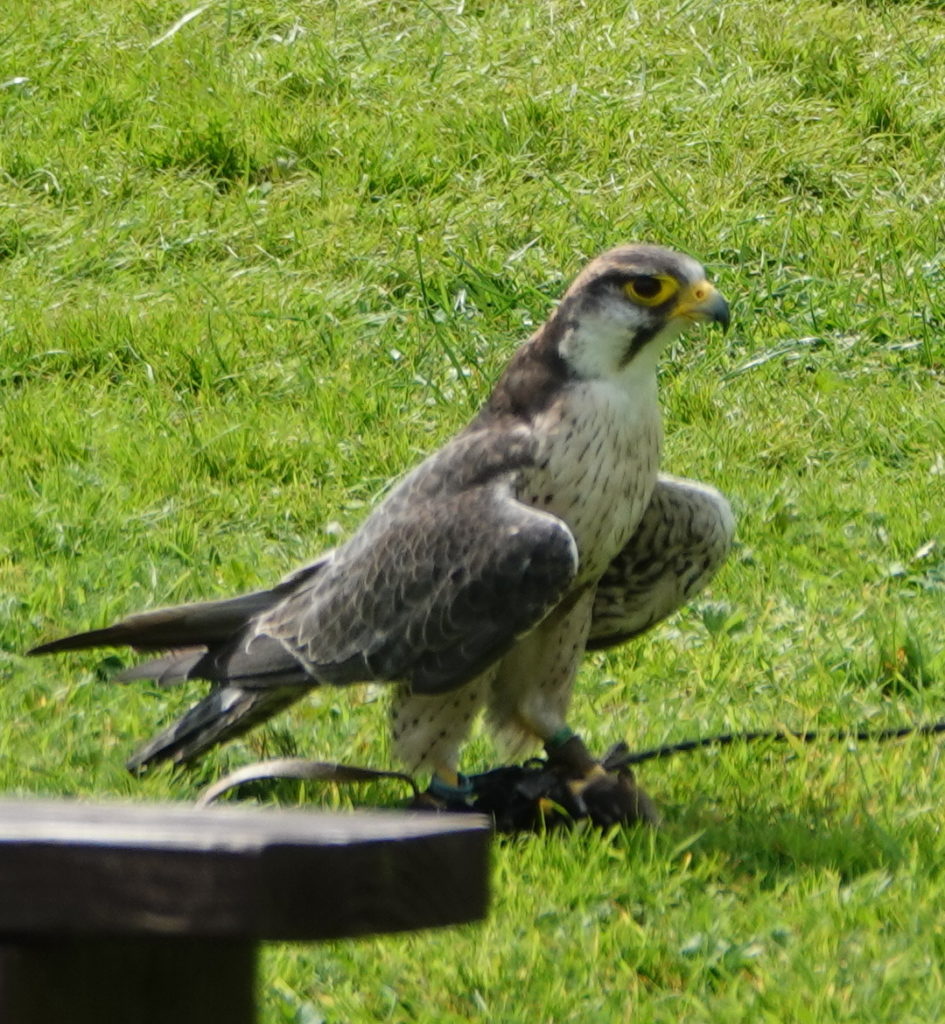
There’s one bit of the city walls we couldn’t walk on because they are being repaired. It’s a difficult job because the not only did the Romans not provide a very good foundation for that bit, they were also inconsiderate enough to build the wall on top of an important Roman archeological site.